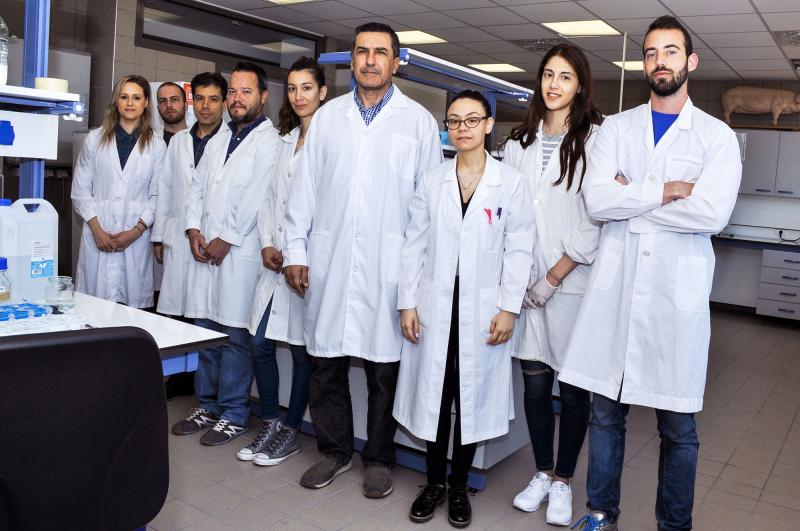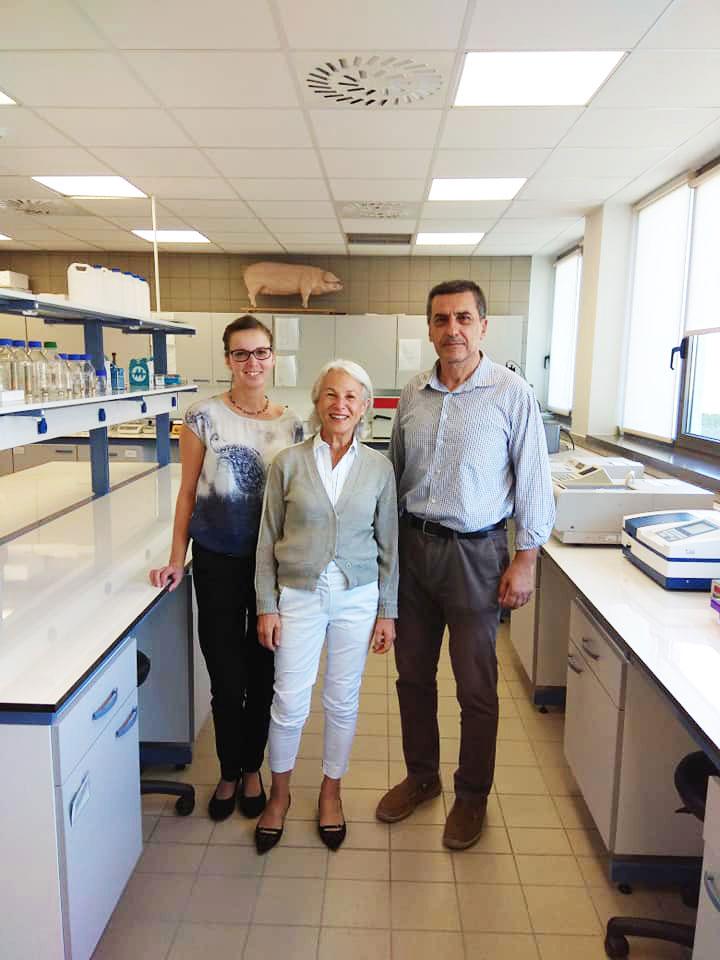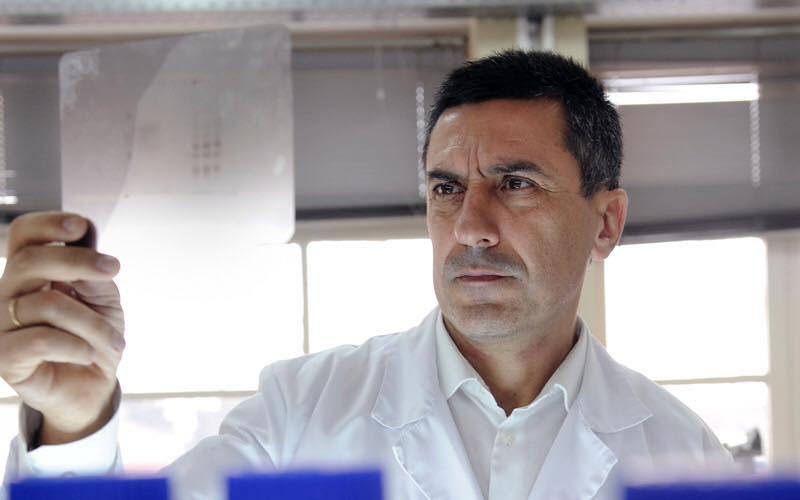Our “nutrition world” is rapidly changing, becoming increasingly unhealthy and sugar-oriented. Time and time again, various nutrition trends have tried to counteract this, but with limited success.
Currently, intermittent fasting is one of the most popular nutrition trends, aimed at losing weight naturally. But what exactly is intermittent fasting, and how healthy is it anyway? Are its benefits scientifically proven? We took these questions to Prof. Dr Dimitris Kouretas, a biochemist who is an expert on the mechanisms of action in our bodies.
Good morning, Professor! What did you have for breakfast today?
Good morning! My day started at 6:00 a.m. this morning with a 2-hour bike workout. My breakfast consisted of 2 rusks, 2 fruits, 1 glass of kefir and 2 hard-boiled eggs.
Fasting seems to be on everyone’s lips nowadays, but what does it actually mean?
Fasting is generally defined as the deliberate abstinence from food. This can be done for a few hours a day or for more than 24 hours. “Intermittent fasting” or “interval fasting” refers to a form of diet in which food intake and fasting periods alternate in a specific rhythm. This can also be done on a weekly basis, where on some days we eat normally, while on other days we fast. During the fasting period, we do not consume calorie-rich foods and only sugar-free drinks.
When the fasting period comes to an end, we should follow a balanced diet plan. Intermittent fasting has gained importance in recent years and is very popular among people who work a lot, as well as athletes and celebrities around the world. It has the advantage of improving health and simplifying people’s lives at the same time. The main advantage of intermittent fasting is that it makes it easier for one to eat healthy. The fact that a person eats less frequently during the day gives them the opportunity to save time. Time otherwise spent on food preparation, cooking and cleaning up afterwards.
Is fasting a modern trend or a dietary necessity with religious roots?
In recent years there has been a tendency to eat more consciously, always with the goal and pursuit of better health. If you search the Internet for the term fasting, you will get a lot of information and find that more and more people around the world are talking about the benefits of fasting. Fasting is very primitive in its basic mechanism and has helped humans survive for centuries.
In the past, people did not have refrigerators or other methods of preserving food, but they survived, thanks to the body’s ability to use stored fat as fuel until it could take in food again. Different religions have incorporated different versions of fasting, such as the 40-day fast before Easter for Orthodox Christians or Ramadan for Muslims. Religion has kept the method of fasting alive for centuries, so today’s science is able to shed light on the pros and cons of fasting.
Can anyone fast? Even children? There is a Greek wisdom that says to be more lenient towards the sick and travelers.
Fasting has proven to be beneficial for human health. However, there are cases where fasting is not beneficial: for example, people who struggle with weight gain, pregnant or lactating women, and especially children under the age of 18 should not fast because they have increased nutritional needs. Sick people should fast only after consulting their attending physician. In the case of metabolic diseases, such as diabetes mellitus or metabolic syndrome, fasting may be allowed under certain conditions and medical supervision. Also, caution should be exercised by people taking prescription medications.
Can the benefits of fasting be scientifically proven?
Of course! A number of positive properties of fasting have already been proven by the scientific community. Every year dozens of new scientific papers are published about fasting and its effects on our bodies. It seems that fasting is a kind of preventive measure for cardiovascular diseases, diabetes mellitus, metabolic syndrome, as well as diseases of the digestive tract.
Are you fasting too?
Fasting has become part of my everyday life in recent years. Four days a week I complete a bike training program, so regular food intake is important because of my body’s increased energy needs. On these days I do not fast. But the rest of the week I use intermittent fasting. When I travel for work, which is often, I prefer not to eat for several hours.
In your opinion, is fasting also a spiritual experience at the same time?
Food abstinence affects the functioning of the brain: when we haven’t eaten for several hours, the body switches to increased ketone body utilization. These ketones are absorbed by the brain as energy sources. This is not a bad thing, it causes the brain to be alert. Conscious fasting is, I think, already a spiritual experience and an exercise for the human being, because it requires a lot of self-discipline and perseverance.
You have worked with the famous Buchinger Clinic (https://www.buchinger-wilhelmi.com). Have you been able to make any new discoveries there?
Working with the Buchinger Clinic showed me that fasting is used as a nutritional therapy in large wellness centers. Something similar does not exist in Greece, unfortunately, although the climatic and geographical conditions would be ideal.

Can fasting in our time be considered a guide or even a solution to fight diseases such as diabetes, cancer or Alzheimer’s?
When a person is deprived of the temporary satisfaction of food, he must necessarily experience satisfaction and contentment through other things. Fasting brings them into this “adventure” and I believe that whoever comes into contact with it changes their life. When I say fasting, however, I do not mean hunger, but conscious, correct and reasonable fasting. In this sense, as a biochemist, I believe that fasting could counteract metabolic diseases such as cancer or diabetes under certain conditions.
Do you think there is a Greek food culture, as seen in the book by Andrew Dalby “Siren Feasts” (ed.: DE: “Food and Drink in Ancient Greece”)?
Because of globalization and free markets, consumers today have the opportunity to eat food that is produced on the other side of the world. In addition, a great deal of food is processed and preserved so that it has a longer shelf life. The disadvantage of this process is that food cultures – including the Greek one -, which are based in tradition and the freshness of products, are being pushed further and further into the background.
What is the relationship between Greek food culture and fasting?
Fasting in Greek food culture is closely related to religious fasting, as it has been an integral part of Greek tradition for centuries. If we were to add up the days that a Greek Orthodox Christian theoretically fasts, we would come to half of the year. Of course, religious fasting is based more on complete abstinence from certain foods. But even that seems to have positive effects on health.
You have spent a long time investigating Greek products such as olive oil, cherries, feta cheese, and goat’s milk. How do you rate these products?
All of the above products belong to the traditional Greek products that have been produced for centuries. Whole generations have grown up with them. As a scientist, I have studied the biological properties of these products in the laboratory and found that they have a positive effect on human health when consumed in moderation: Olive oil is rich in polyphenols and contributes to heart health; cherries are also rich in polyphenols and also have anti-inflammatory and antioxidant properties; feta cheese and other dairy products have biologically valuable protein content and support intestinal function.
What do you prefer to eat and what do you rate as useful and indispensable in your daily diet?
I think salad is important! My lunch every day starts with a big plate of salad. I usually eat a farmer’s salad with feta cheese and good olive oil, which gives the salad that special taste.
Which Greek dish is the most “misunderstood”?
Souvlaki pita – under certain conditions, of course. So if the pita bread is made of wheat flour and just dripping with oil, and then filled with French fries and/or various fatty sauces, it immediately becomes a very unhealthy option. However, if I have pita bread made from whole wheat flour and fill it with a traditional skewer of pork or chicken, tomatoes, onions or lettuce and tzatziki, souvlaki pita can also be a pretty healthy meal.

Which of Saltonomy’s recipes are your favourite? Can you tell which you would consider putting under the profile of healthy eating from your experience?
I have looked closely at your recipes and I can say that I was impressed by the variety. For the most part, they are healthy traditional Greek recipes, so it is difficult to choose. However, there are a few dishes that I would highlight. These include:
- Fasolakia on wheat
- Sesame soup
- Nettle soup
- Pumpkin with olives and chestnuts
- Black-eyed bean salad
- but also the traditional Greek bean soup
These dishes are made from natural and traditional products, rich in fiber and phytochemicals, which have a positive effect on health.

Dimitris Kouretas was born in Patras in 1962. There he studied pharmacy and received his PhD from the Faculty of Chemistry at the Aristotle University of Thessaloniki. In 1990-1992, he conducted research as a biochemist at Harvard Medical School in Boston. He is currently Professor of Animal Physiology and Toxicology and Director of the laboratory of the same name at the Faculty of Biochemistry-Biotechnology of the University of Thessaly. He lives in Larissa. Kouretas studies interaction mechanisms of nutritional elements and organism at molecular level, especially during physical training. He has published more than 180 articles in internationally renowned journals and was an EU expert for the Food for Life Technology Platform. He has been a member of the World Academy of Sciences since January 2019. His work has been awarded in Greece and Europe.


